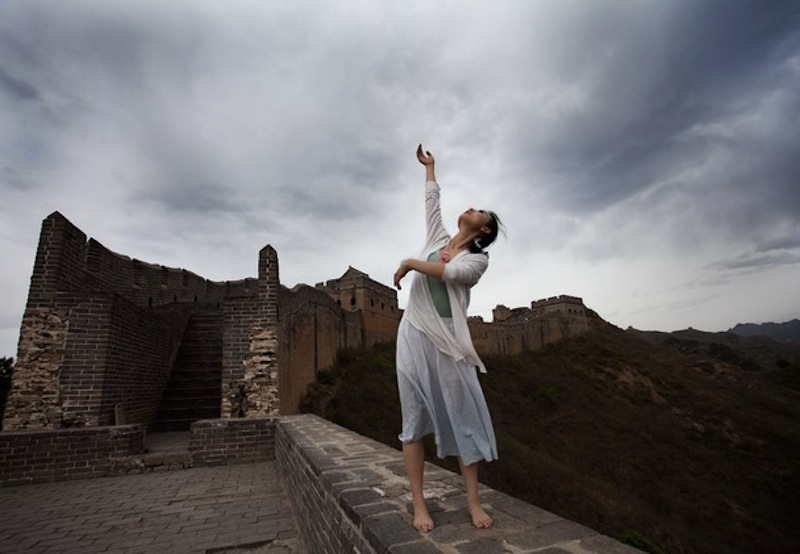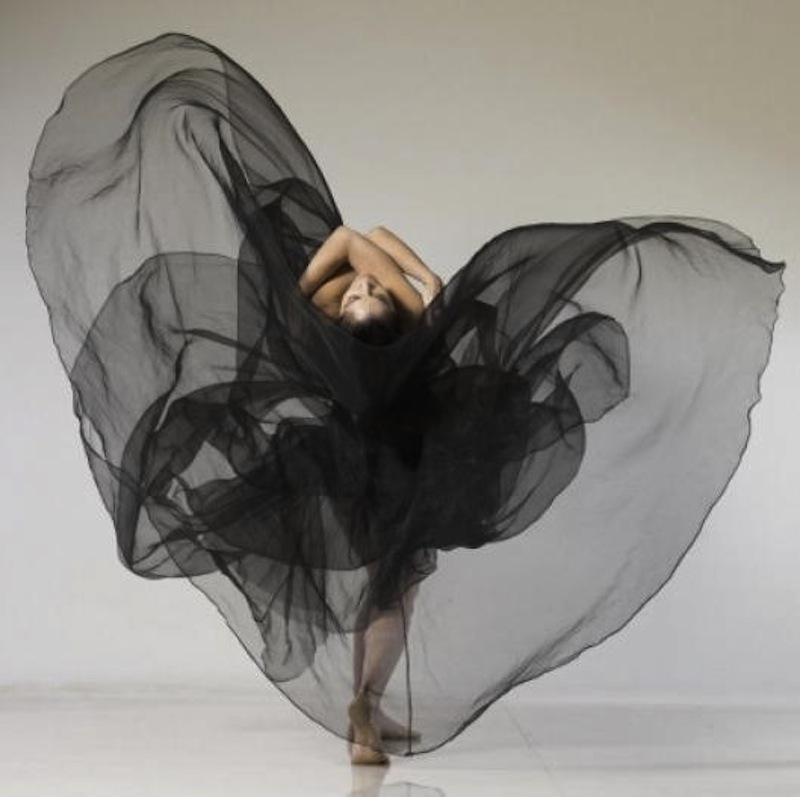Dancing for the Crowd
Christina Lee
 I spent the afternoon before I gave my first poetry reading drinking wine in an outdoor café in Santa Fe. Although I’d set aside the time as a sort of toast to my two years of grad school, although I instagrammed a glow-y shot of the wine and my manuscript and the robin’s egg sky (#nofilter), I was miserable.
I spent the afternoon before I gave my first poetry reading drinking wine in an outdoor café in Santa Fe. Although I’d set aside the time as a sort of toast to my two years of grad school, although I instagrammed a glow-y shot of the wine and my manuscript and the robin’s egg sky (#nofilter), I was miserable.
As the hours passed, I grew increasingly terrified at the prospect of giving a reading. I read a few of my poems, felt sick to my stomach, read a bit out of the amazing chapbook from the visiting poet at our residency, re-read my own work, grew more nauseous.
My carefully chosen words suddenly felt all wrong: obvious, trite and forgettable. Fears choked me: Would my images be clear enough? Would anyone fall asleep? Would the audience provide the appropriate amount of guttural, congratulatory “hurrrms”?
I ordered another glass of wine.
I’m (usually) far too proud to discuss this sort of thing. Also, I also have a poet’s revulsion of the cliché (e.g. tortured artist drunkenly mopes in cafés). This means I can’t really even indulge in self-loathing without loathing the very self-loathing in which I’m attempting to indulge. It’s layer-loathing. To me, it’s akin to layer-cake, not in that it is enjoyable, but rather in that it usually ends with me stress-eating a layer cake.
It was getting dark. I packed up and shuffled out, hoping I’d make it back in time hit up the residency dessert table (e.g. cake).
On the way to my car, I passed a crowd gathered for an outdoor concert in the Plaza. A man strummed a guitar on the gazebo stage and buzzed his lips into the microphone like a trumpet.
As I edged in to get a better view, I noticed a young couple dancing. They caught my eye because they didn’t really look like dancers. They clothes were simple, almost grungy. The guy’s smile was masked by an unkempt beard; the girl’s hair was cropped, showing off a harshly pretty face. They looked more like backpackers a few days out on the trail.
But they were amazing dancers. They moved with the smoothness of water. They shimmied and twisted and slunk. They didn’t seem to be following a routine. The guy would just whisper something in his partner’s ear and she’d sort of glow and nod and then they’d start moving together differently. Every few minutes they would lock eyes and laugh—not embarrassed laughter, or ironic laughter, the way I would have laughed dancing for a crowd. Just deep, satisfying, honest laughter.
They didn’t even notice us watching. They were too lost in the mercurial joy of moving together. They made me think of Eliot's still point of the turning world.
The musician switched to a new song, and others began joining in. First a white-haired woman in a floppy-brimmed hat stood up. She moved like a fish caught on a wire, jerking toward the guitar player when he strummed a percussive downbeat then springing away to lift her face and hands up to heaven. Then a mom pulled her daughter, who had Downs syndrome, onto the floor. The girl spun and clapped and beamed as they shuffled.
As the courtyard fluttered with dancers, I could still catch glimpses of the couple, laughing together and slipping deftly through the crowd they’d created.
Dean Young calls for poetry that “has the supreme confidence of handling elemental fuels.”Those two dancers moved like fire, like the best kind of poem. Their confidence made me ashamed of the way I’d spent the afternoon, paralyzed by my own ego and fear of failing.
The next morning, as my name was announced, as I strode to the podium, I pictured the dancers. I channeled their ease and their relaxed joy. And I took a deep breath and started to read.
